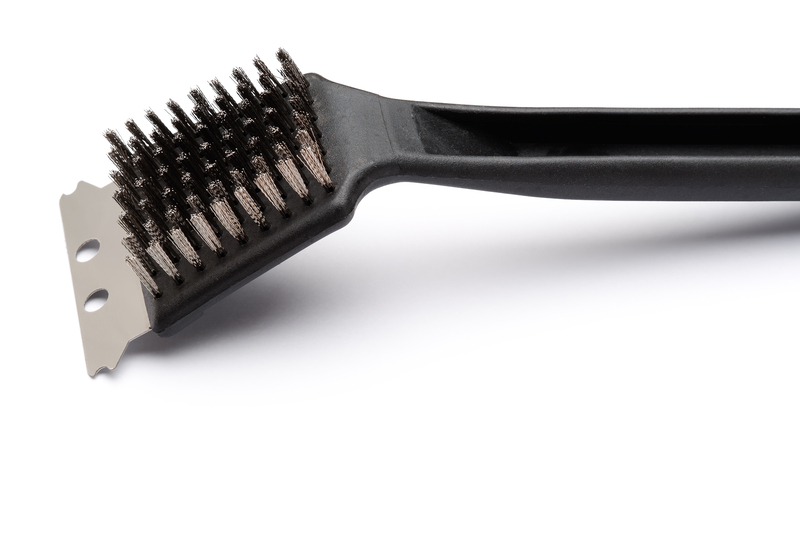Maximize Your Deposit with End of Tenancy Cleaning Advice
Posted on 11/06/2025
Maximize Your Deposit with End of Tenancy Cleaning Advice
Moving out of a rented property can be both an exciting and stressful period. Among the mountain of tasks to complete, ensuring you receive your full deposit back is often the top concern for tenants. End of tenancy cleaning plays a pivotal role in this process. Whether you are moving out of an apartment, house, flat or any other rented accommodation, employing the right end of lease cleaning tips is crucial for your financial well-being and peace of mind.

Understanding the Importance of End of Tenancy Cleaning
Before delving into actionable advice, it's essential to comprehend why end of tenancy cleaning matters. Most landlords and letting agencies clearly state in tenancy agreements that the property must be left in the same condition as when you moved in, barring fair wear and tear. Failure to do so could result in deductions from your deposit, or even complete forfeiture.
Most disputes over deposit deductions are related to inadequate cleaning. A detailed and thorough clean not only fulfills the terms of your rental agreement but also leaves a good impression on your landlord or letting agent, increasing your chances of securing a full deposit return.
Start with a Solid Plan: When and How to Begin
A well-organised strategy can make the cleaning process more efficient and effective. Here's how you can get started:
- Check your tenancy agreement for specific cleaning clauses.
- Request the inventory or check-in report: This provides a detailed snapshot of what the property looked like when you moved in, including the condition and cleanliness.
- Schedule your cleaning: Allocate enough time for deep cleaning every room. If possible, leave at least a day between finishing your cleaning and your official moving-out date.
DIY vs. Professional End of Tenancy Cleaning Services
Many tenants wonder if they should handle the cleaning themselves or hire professionals. Below are the pros and cons of each:
- DIY cleaning: Cheaper, but can be time-consuming and may lack the thoroughness required by landlords.
- Professional end of tenancy cleaners: More expensive, but they guarantee a high standard, often providing a receipt which can be presented to your landlord to prove the work's been done to a professional level.
Either approach can successfully maximize your deposit return as long as the cleaning is comprehensive and up to standard.
Key Areas Landlords Check During Inspection
- Kitchens: Ovens, hobs, extractors, sinks, countertops, and cupboards are prime hotspots for dirt, grease, and food residue.
- Bathrooms: Toilets, showers, bathtubs, and tiles must be spotless and free of limescale and mould.
- Floors and Carpets: Pay attention to staining, pet hair, and crumbs. Deep cleaning or shampooing carpets is often required.
- Windows and Window Frames: Both inside and out, streak-free glass and clean sills matter.
- Walls and Doors: Remove scuff marks, fingerprints, and cobwebs.
- Light Fixtures and Switches: Dust and stains can easily be overlooked but are often checked.
- Inside Appliances: Fridges, freezers, microwaves, kettles and washing machines need cleaning and inspection for any food left behind or limescale buildup.
- General Dust and Debris: Skirting boards, radiators, and other tricky spots shouldn't be missed.
Room-by-Room Move Out Cleaning Checklist
Staying organized with a room-by-room checklist ensures you don't overlook any area. Here's a comprehensive guide for every room:
Kitchen
- Clean oven, stove, and extractor fan -- Remove burnt-on food, grease, and change filters if necessary.
- Wipe countertops and cupboard interiors -- Remove all food, clean and disinfect.
- Defrost freezer and clean fridge -- Clear out, disinfect, and leave doors propped open.
- Wash sink and taps -- Remove stains and limescale.
- Clean dishwasher and washing machine -- Wipe seals and remove food debris or detergent build-up.
- Mop floors -- Remove stains, sweep and mop thoroughly.
Bathroom(s)
- Scrub shower, bath, and tiles -- Remove all limescale and soap scum.
- Toilet deep clean -- Disinfect inside and out.
- Mirrors and glass -- Clean using an appropriate glass cleaner for streak-free finish.
- Sinks and taps -- Polish to remove water spots.
- Floors -- Mop and ensure grout is clean.
Living Room and Bedrooms
- Vacuum carpets and mop floors
- Dust all surfaces -- Tables, shelves and behind furniture.
- Clean windows and sills
- Wipe skirting boards and door frames
- Spot clean walls for marks
- Check behind and under furniture for dust and items left behind.
Common Areas
- Clean light switches and door handles
- Clear out cupboards and storage spaces
- Empty and clean bins
Expert End of Tenancy Cleaning Tips to Secure Your Deposit
Achieving a professional level of cleanliness does not have to be daunting. Follow these expert tips to ensure you maximize your deposit:
- Invest in the right cleaning materials: Microfibre cloths, good quality sprays, limescale remover, rubber gloves, and a strong vacuum can make the job easier and more effective.
- Use checklists: Don't rely on memory - a checklist ensures you systematically cover every area.
- Work from top to bottom: Clean higher surfaces first, so dust and dirt fall to the ground and are dealt with when you finish with vacuuming or mopping.
- Pay extra attention to high-traffic areas: Entryways, kitchens and bathrooms attract the most grime and will undergo the most scrutiny during inspection.
- Leave windows open to air out the property: This prevents musty odours and helps floors and surfaces dry.
- Document your efforts: Take photos before you leave as proof of cleanliness, especially if you clean yourself.
Common Mistakes That Put Your Deposit at Risk
Avoid these frequently made errors when conducting your end of tenancy cleaning:
- Neglecting hidden or tricky areas -- The insides of cupboards, behind radiators, under beds and inside appliances are commonly missed but regularly checked during inspections.
- Ignoring limescale and mould build-up -- Particularly in bathrooms and kitchens, these can lead to immediate deductions.
- Moving furniture before cleaning underneath -- Furniture is likely to be moved during inspection, revealing hidden dirt.
- Leaving items behind -- Unwanted furniture, food, or rubbish can count as a cleaning failure and incur charges.
- Forgetting to empty bins or appliances -- Food and rubbish left in the property is a red flag for any inspector.
Professional End of Tenancy Cleaning Services: Are They Worth It?
While DIY end of tenancy cleaning is perfectly viable, hiring a professional end of lease cleaning company offers several advantages:
- Time-saving: A pro team can deep clean an entire property in hours, compared to the days it might take you.
- Experience and tools: They use commercial grade cleaning supplies and methods, often delivering a higher standard.
- Guaranteed work: Reputable companies offer guarantees -- if your landlord isn't satisfied, they will revisit and re-clean.
- Proof of cleaning: You'll receive a receipt and sometimes even a checklist, supporting your claim to a full deposit.
Just remember to:
- Book early: Top cleaning companies are in high demand at month's end.
- Choose a firm with positive reviews and end of tenancy cleaning expertise.
- Clarify what's included (e.g., carpet and oven cleaning, upholstery, window washing).
How to Communicate with Your Landlord or Letting Agent
Transparent and courteous communication can go a long way. Here are some actionable steps:
- Inform your landlord about your moving-out date and request a pre-inspection if possible.
- Share details about any professional cleaning services used and provide receipts if necessary.
- Address any minor repairs or issues before handing over the keys (e.g., filling nail holes, replacing light bulbs).
- Be present during the final walk-through so you can discuss and resolve any concerns in real time.
End of Tenancy Cleaning FAQ
How clean does the property need to be?
It should be as clean as it was at move-in, not necessarily better, except for fair wear and tear. Check your inventory for specifics.
Can the landlord force me to use a professional cleaning service?
No, they cannot require you to use a particular company; however, they can expect a professional level of cleanliness. Providing proof (like receipts) helps avoid disputes.
What if the property was not professionally cleaned before I moved in?
You only have to return the property in the same condition that it was provided to you (again, check your original check-in inventory).
Do I need to arrange carpet or upholstery cleaning?
If the original condition or your tenancy agreement states these were professionally cleaned before your tenancy, you'll likely need to do the same on departure.

Top Takeaways: Maximize Your Deposit at the End of Tenancy
- Thorough, detailed cleaning is vital to maximize your deposit refund.
- Always reference your original check-in inventory report.
- Use checklists and don't overlook small details or hidden areas.
- Decide on DIY or professional cleaning based on your budget and time.
- Document your efforts and communicate openly with your landlord.
Your Clean Move: Secure Your Deposit with Confidence
Leaving a rental is a significant life step. By investing time, effort, and planning into your end of tenancy cleaning, you stand the best possible chance of maximizing your deposit return and making your move as seamless as possible. Remember, whether you choose to tackle the task yourself or hire a professional service, attention to detail is your strongest ally -- so make your move count and leave your rented home sparkling clean!


